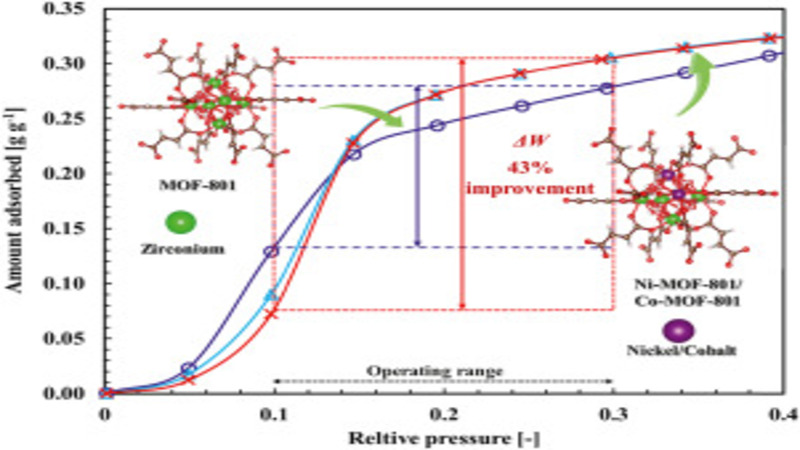
New publication in 2022: Sustainable Materials and Technologies (IF: 7.053)
Abstract
Adsorption-assisted energy conversion technologies are receiving extensive attention recently as a sustainable technology for meeting the worldwide energy demand. The advancement of this technology relies on the development of the mass and heat transfer properties of the adsorbent materials. MOF-801, a zirconium-based microporous metal organic framework (MOF), is regarded as a promising adsorbent for adsorption-assisted energy conversion technologies. This study focuses on enhancing the water sorption properties of MOF-801 by introducing different transitional metals, nickel, and cobalt, into the framework. Herein, two novel bimetallic MOFs were synthesized by partial substitution of the metal zirconium in MOF-801 with nickel and cobalt, employing a one-pot solvothermal synthesis method. The bimetallic MOFs, Ni-MOF-801, and Co-MOF-801, were found isostructural with the pristine MOF-801. Porous properties were measured experimentally, and an increment in total surface area and microporous surface area was observed for both samples. The water adsorption isotherm of the samples was measured, and a greater affinity at the lower pressure region was observed compared to the pristine MOF due to the synergistic effects of two metals in the frameworks. This greater affinity towards water vapor resulted in an increase in effective net uptake and specific cooling effect. The thermophysical properties were measured experimentally over a wide range of temperatures, and an improvement was found in the doped MOF-801 samples. Co-MOF-801 outperformed the pristine MOF-801 with a 43% improvement in specific cooling effect for delivering high-grade cooling at 10 °C with the same working conditions. The results will significantly contribute towards the development of high-performance next generation adsorption-based energy conversion systems.